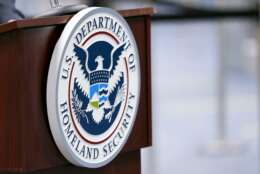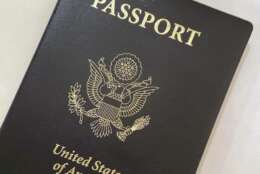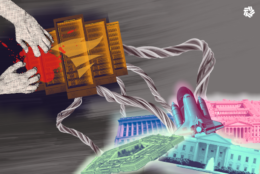zero trust
-
The Cybersecurity and Infrastructure Security Agency says a long-term vision for zero-trust adoption across agencies is coming into focus.
July 05, 2021 -
The State Department makes a big policy change to passports. All federal fighters will likely make no less than $15 dollars an hour. And Guantanamo Bay is on the chopping block — again.
July 01, 2021 -
Ericom's Chase Cunningham joined host John Gilroy on this week's Federal Tech Talk to discuss the concept of zero trust.
June 28, 2021 -
By embracing a zero trust architecture, agencies can have full visibility and control over their resources, ensuring the devices connecting from various physical locations are safe.
June 25, 2021 -
Chris DeRusha, the federal chief information security officer, said the annual Federal Information Security Management Act (FISMA) report to Congress further highlights why the administration is focusing on some key areas to improve.
June 18, 2021 -
DoD wants to work toward creating a digital identity for all 8 million of its customers—servicemembers, their families, contractors and civilian employees.
June 14, 2021 -
It's been building for a while, the move to implement an architecture known as zero trust in agency information technology networks. Now the Biden administration has specifically called for it in a recent cybersecurity executive order.
May 28, 2021 -
In today's Federal Newscast, House and Senate lawmakers seek to overturn a ban on the Postal Service shipping alcohol to households.
May 19, 2021 -
President Joe Biden mandated dozens of new steps to address long-standing cybersecurity challenges in a new executive order signed Wednesday.
May 13, 2021 -
Agencies will continue to exist in a multi-cloud world for the foreseeable future.
April 30, 2021 -
Bill Moore, the CEO and founder of XONA, offers some tips for how agencies can better secure operational technology along with IT.
April 22, 2021 -
Bryan Rosensteel, a cybersecurity architect for the public sector at Cisco’s Duo Security, said if cybersecurity tools make technology difficult to use, employees will not use them.
April 15, 2021 -
As the global leader in mobile security, Zimperium protects thousands of enterprises and government agencies worldwide. It is no surprise that100 percent of our customers have detected mobile threats including compromised and jailbroken devices, mobile phishing campaigns, malicious/risky apps, and network attacks.
April 15, 2021 -
Although vulnerabilities stemming from both companies software were present on hundreds of DoD systems, officials say there's no evidence that cyber adversaries actually exploited them.
April 15, 2021 -
This discussion with Dave Zukowski, a principal technical consultant for public sector at Akamai, is part of Federal News Network’s DoD Cloud Exchange.
March 25, 2021














